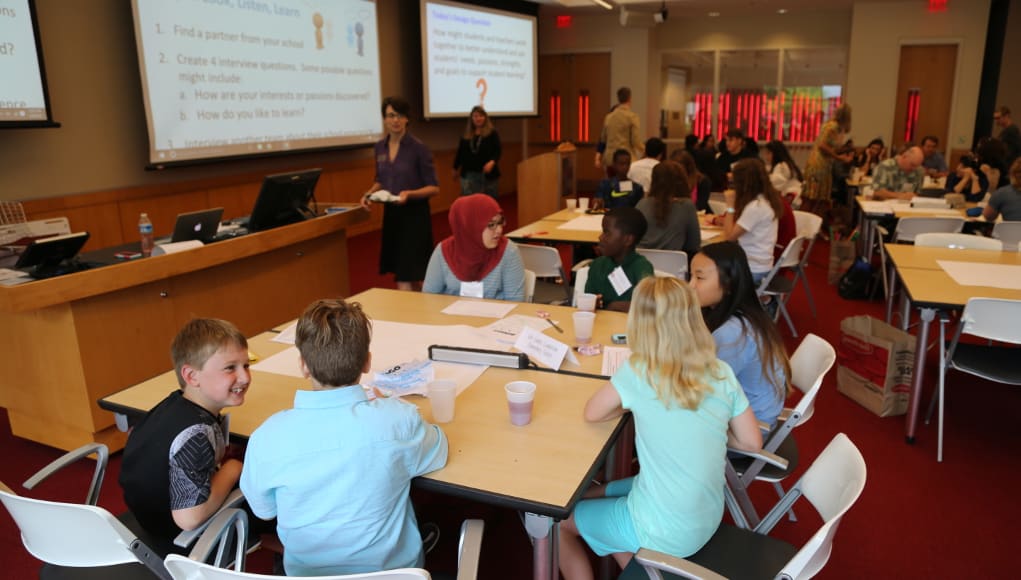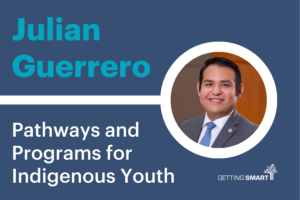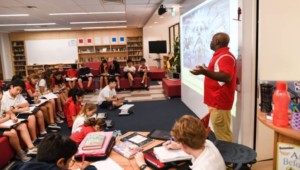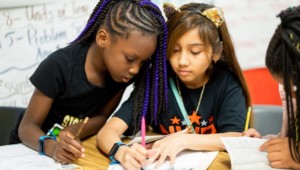What Do Students Really Think About Teaching and Learning?

By Dr. Mary Ann Wolf
“I want my teachers to know more about my passions and interests, and I want to know more about them.” ~ Fifth-grade female student, Wake County Public Schools
“Every person learns differently, and we need to understand that.” ~ High school male student, Wake County Public Schools
Too often in education, we bring together multiple stakeholder groups to discuss teaching and learning in order to create a vision or explore issues related to education transformation. These meetings typically include representatives of nonprofits, think tanks, companies and leaders from districts and schools.
And while we at times include teachers, I have been concerned for some time that the ultimate beneficiaries of these sessions are not invited. Why is the student perspective left out of a great number of our conversations about school and learning?
The Friday Institute recently hosted the Personalized Learning Summit in partnership with Digital Promise and the Oak Foundation. As we began planning for the summit, we intentionally led with the student and teacher voice in order to infuse our work with a focus on outcomes, not process.
Students and teachers from Wake County Public Schools in North Carolina participated in a Design Challenge around the questions of:
- What students would like to know about their own learning;
- What they wish their teachers knew; and
- What teachers would like to know about their students and their learning.
Check out this short video of a few participants sharing their answers to these questions:
Design Challenge With Students And Teachers
The model used for the Design Challenge was adapted from the Stanford d.school and Spencer models for design thinking. Students developed questions, interviewed each other, developed a prototype and received input from others. They then created their final products. Interestingly, students and teachers arrived at similar problem statements — all focused on relationships and wanting a better understanding of each other.
The students and teachers then kicked off the summit itself. They shared insights about teaching and learning and their personal educational experiences with more than 100 educators, policymakers and representatives from nonprofits, companies, foundations and universities participating in the summit.
A mere taste of the wisdom imparted:
● Relationships matter. Students want to know their teachers better, and they want teachers to understand their passions. Teachers want time to get to know students beyond their academic achievement.
● Context and relevance matter. Students, especially high school students, want authentic learning experiences. They want to solve problems, but they want them to be grounded in their world.
● Students want agency and voice. They want to be active drivers in their own learning. They want to have choices, various ways to learn and opportunities to explore their passions within formal learning environments.
● Students learn in many different ways. Students and teachers emphasized that they each learn differently. Students want opportunities that address these learning differences, and teachers would like to be able to personalize learning more for kids.
Summit participants built upon these tremendous insights and ideas as they dug deeply into areas that are critical to (but often overlooked in) our education environments:
- Social emotional learning
- Metacognition
- Learner agency
Participants also explored the challenges of and possible approaches to addressing the needs of a school district or school to make these critical areas and, more broadly, personalized learning a reality. Recommendations evolving out of these working groups will be released in the coming months and will include examples and strategies for all in the space to consider and implement.
Begin With The Student
The first lesson we all learned: We should all strive to break out of the typical impulse to dive directly into adult-driven consideration of the future of school. To “begin with the student” ensures we remember why we do this work in the first place.
If we truly want to understand students and how we can most effectively personalize their learning, we must continually turn to them; ask them about their experiences, goals and needs; and allow them to have ownership and agency in their own learning.
As a result of the summit, the Friday Institute is releasing a series of papers that present lessons learned and practical recommendations for educational leaders. Be sure to check out the first paper, Prioritizing Personalized Learning: District Recommendations, and look for more lessons learned about learner agency, metacognition and social emotional learning as we prepare to provide personalized learning for every student.
For more, see:
Dr. Mary Ann Wolf is director of digital learning programs at the Friday Institute. Follow her on Twitter: @maryannwolfed
Stay in-the-know with all things EdTech and innovations in learning by signing up to receive the weekly Smart Update.





0 Comments
Leave a Comment
Your email address will not be published. All fields are required.